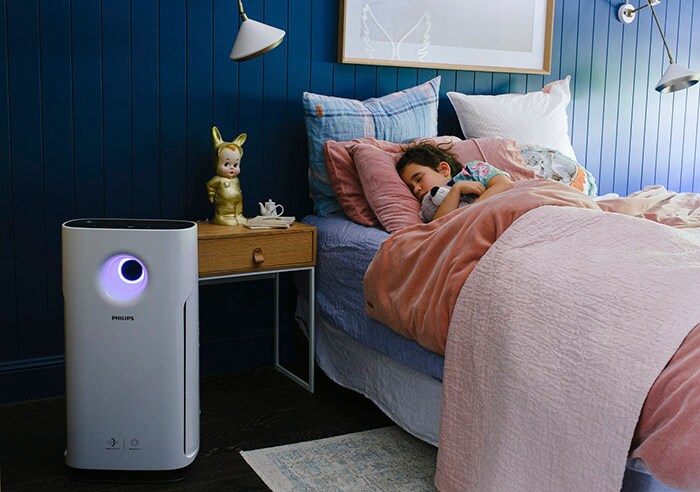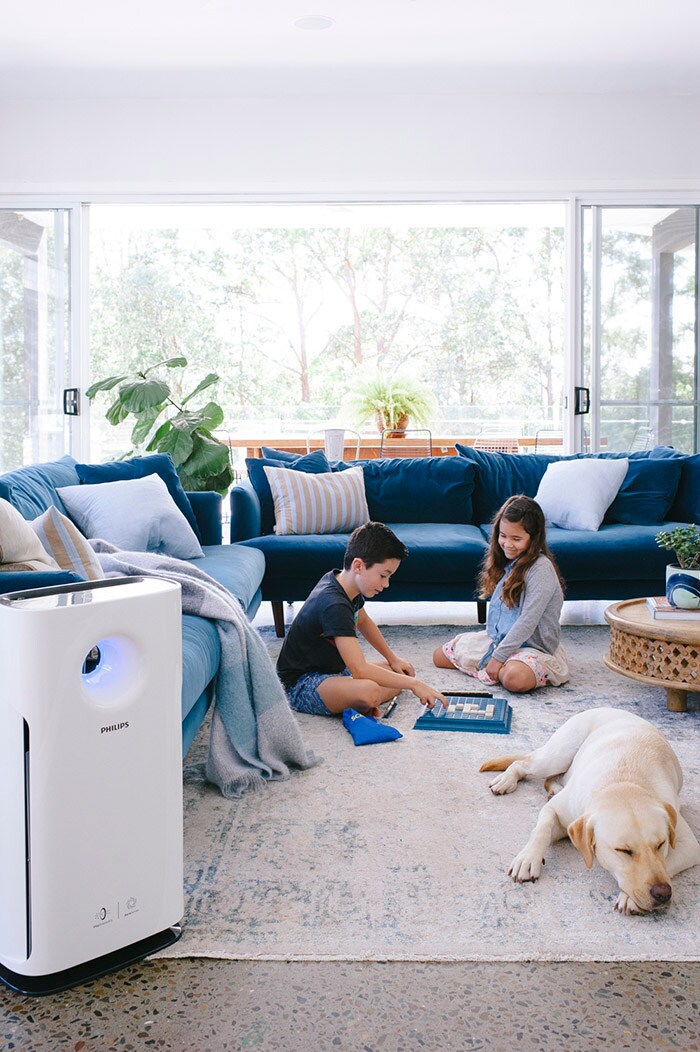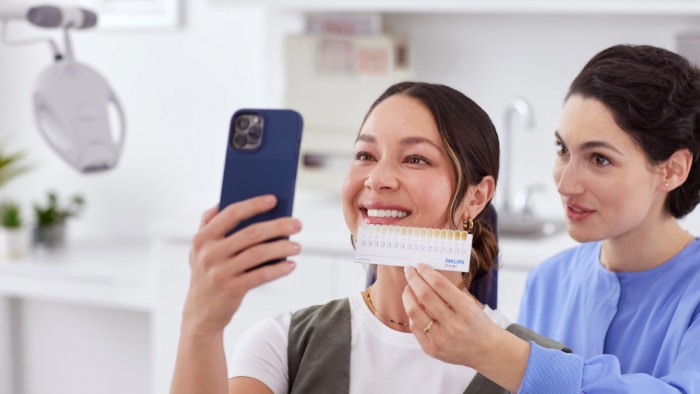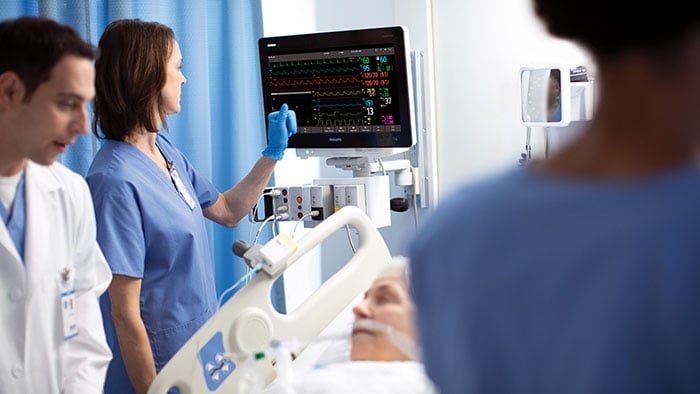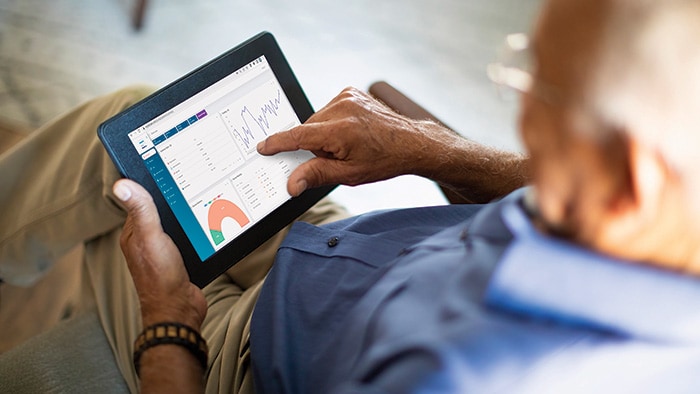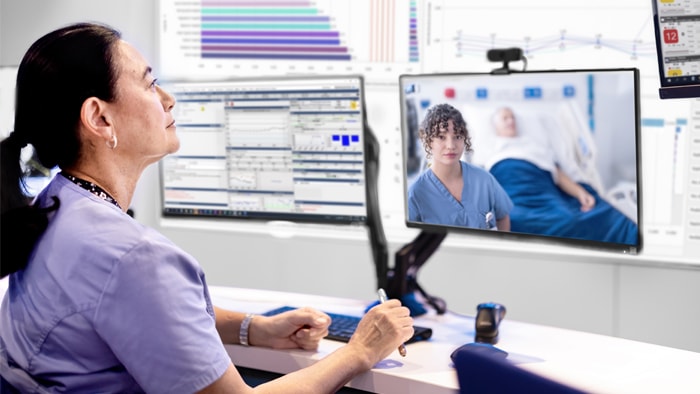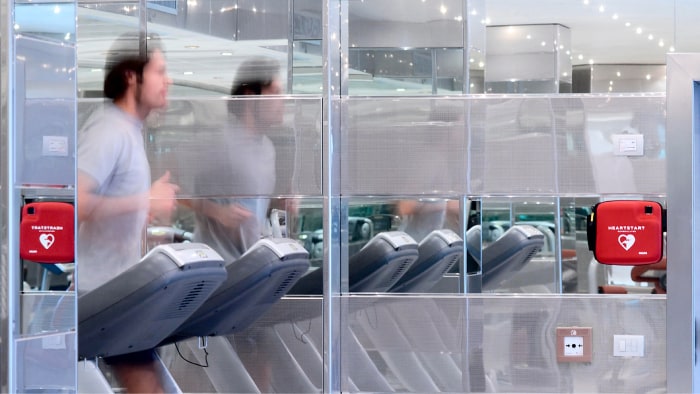Oct 24, 2018
Australians need a breath of fresh air at home
New research from Philips reveals Australians need to improve their understanding of air quality in their home
Sydney, Australia - The quality of the air we breathe is an important part of creating the right home environment, yet new research from Royal Philips (NYSE: PHG; AEX: PHIA) reveals more education is needed to help Australians understand the factors that lead to poor indoor air quality. The new research from Philips Australia and New Zealand* reveals almost half (42%) of the 1,000 Australians surveyed are concerned about the quality of air they breathe, yet only a small fraction (5%) consider it the most important aspect of their home. Location (37%), build (15%), and interior design and decoration (13%) prevail as more important than air quality amongst the Australian surveyed. According to the Environmental Protection Society, indoor air is often two to five times more polluted than outdoor air, caused by everyday particles such as pollen, pet dander, mould spores and even harmful gases such as Total Volatile Organic Compounds (TVOC). These factors can have health implications, particularly for the growing number of asthma sufferers.1
Indoor air triggers such as dust mites, mould and pet dander have the potential to trigger asthma, hayfever and allergies. These are often invisible to the human eye, which is why we encourage people with asthma or allergies to look at products such as Philips Air Purifiers to help filter out the airborne pollutants in their home.
Adele Taylor
Spokesperson from the National Asthma Council Australia
Adele Taylor from the National Asthma Council Australia said, “Indoor air triggers such as dust mites, mould and pet dander have the potential to trigger asthma, hayfever and allergies. These are often invisible to the human eye, which is why we encourage people with asthma or allergies to look at products such as Philips Air Purifiers to help filter out the airborne pollutants in their home.” While most respondents (95.7%) acknowledged they have indoor home pollutants, such as dust (63%) and pet dander (60%) in their homes, only a quarter (25%) of them understand that cooking with a gas stove or oven can release air pollutants. More than half of respondents (57%) have pets in their homes, and 47% have candles and incense in their homes – all of which can impact indoor air quality. 56% of respondents who were home owners did not consider air quality when making home upgrades. Three in four admitted that they haven’t even heard of an air purifier, including the benefits it can bring to improving air quality. To help Australians understand how to manage the quality of air inside their homes, Philips has partnered with The Block alumni Michael and Carlene Duffy, who are experienced renovators and designers. With any renovation, the couple know the importance of creating the right home environment. “When starting any home improvement project, air quality should be top-of-mind. It’s an essential part of our plans, from installing correct ventilation to buying paint that gives off less harmful gases,” said Michael Duffy. “In my experience, poor indoor air quality can trigger and cause symptoms associated with asthma and allergies. With two kids and a pet dog we need to keep our indoor air as pure and clean as possible. I feel assured that my Philips Air Purifier removes 99.97%** of air particles giving us piece of mind to focus on our next project instead.” said Carlene Duffy. Statistics from the National Asthma Council Australia show approximately one in ten Australian adults and one in nine Australian children have asthma2, one of the highest national rates globally3. Of these, around 80% of people who have asthma also have hayfever, the allergic response to outdoor and indoor allergens, causing symptoms such as sneezing, runny nose and itchy eyes4. Michael and Carlene Duffy developed their top tips for improving air quality in your home when renovating. 1) Air Purifiers Philips Air Purifiers give real time air quality feedback through a numerical allergen index and most models have the Philips Aerasense TechnologyTM which has a colour ring that lights up in real time reflecting any change in air quality. It removes 99.97% of airborne allergens such as pollen, pet dander and dust mites. 2) Keep it natural Some paints and flooring contain gases that continue to emit after installation, which can irritate allergies and create lower air quality. When buying carpet, flooring and paint, be sure to choose low or no Volatile Organic Compounds (VOC). 3) Houseplants Add more houseplants to your home to help filter airborne pollutants. Some plants are better than others at this, for example bamboo palm, snake plant and peace lily are all great at absorbing carbon dioxide and pollutants from the air and releasing oxygen. 4) Kitchen fans Gas stoves can affect indoor air quality so installing a strong and powerful extractor fan above the stove is essential in helping combat that. With a lot of our projects we use retractable fans to keep the aesthetics clean and minimal in the kitchen. 5) Trickle vents Trickle ventilators are the best option for getting outside air into your home through a filter, which will increase the airflow and help remove stagnant air. High risk areas such as the kitchen are good places to house these. 6) Fresh furniture Be aware that a lot of furniture is made with solvents that continue to release toxins into the air when delivered into homes. It’s always worth asking the production methods used to try and overcome this where possible. 1 Environmental Protection Society, Indoor Air Quality: What are the trends in indoor air quality and their effects in human health, July 2018 2 Australia Institute of Health and Welfare: Asthma 2017 4 Health Direct, Hay Fever (allergic rhinitis), July 2017 Philips Air Purifiers are available at David Jones, JB Hi-Fi, Bing Lee, Appliances Online, Harvey Norman and Myer, starting from RRP$329. Most Philips Air Purifier Series uses the patented Aerasense™ only found in Philips Air Purifier monitors and indicates the air quality at home via an instant colour index, so you will always know what air you are breathing at home. For more information visit www.philips.com.au. Notes to the editor *About the research Philips commissioned research to address some of the most common perceptions surrounding indoor quality in Australian households; helping to educate Australians and raise awareness of how poor indoor air quality can be and how to overcome common triggers. Commissioned by Pure Profile on behalf of Philips, research was conducted online in September 2018 using a sample of 1,000 Australians. Respondents were gathered Pure Profiles database of over 250,00 Australians from all six states, ranging from 18-55+, both male and female respondents. **Disclaimer: Philips Air Purifiers traps 99.97% of particles as small as 0.3 microns that pass through the filter such as dust, pollen and mould spores (also tested with Staphylococcus albus and Influenza A (H1N1)). Does not reduce or absorb carbon monoxide gas. Keep gas appliances well ventilated.
About Royal Philips
Royal Philips (NYSE: PHG, AEX: PHIA) is a leading health technology company focused on improving people's health and enabling better outcomes across the health continuum from healthy living and prevention, to diagnosis, treatment and home care. Philips leverages advanced technology and deep clinical and consumer insights to deliver integrated solutions. Headquartered in the Netherlands, the company is a leader in diagnostic imaging, image-guided therapy, patient monitoring and health informatics, as well as in consumer health and home care. Philips' health technology portfolio generated 2016 sales of EUR 17.4 billion and employs approximately 73,000 employees with sales and services in more than 100 countries. News about Philips can be found at www.philips.com/newscenter.

